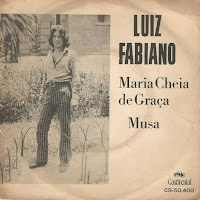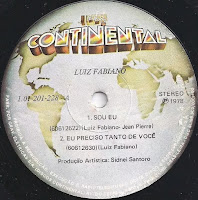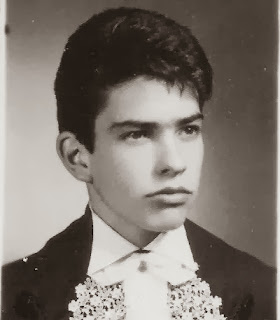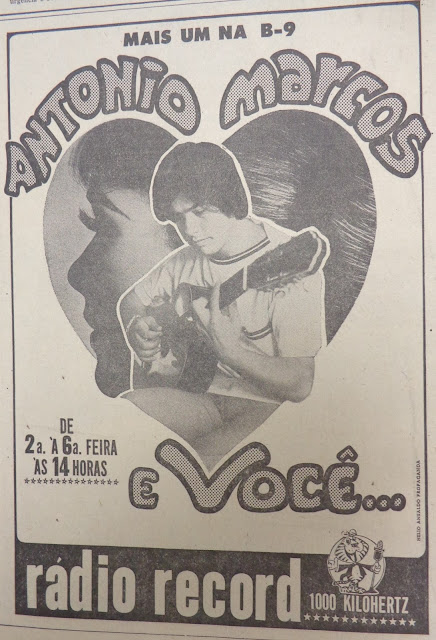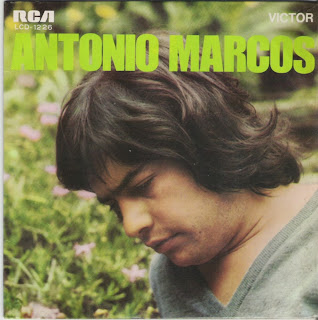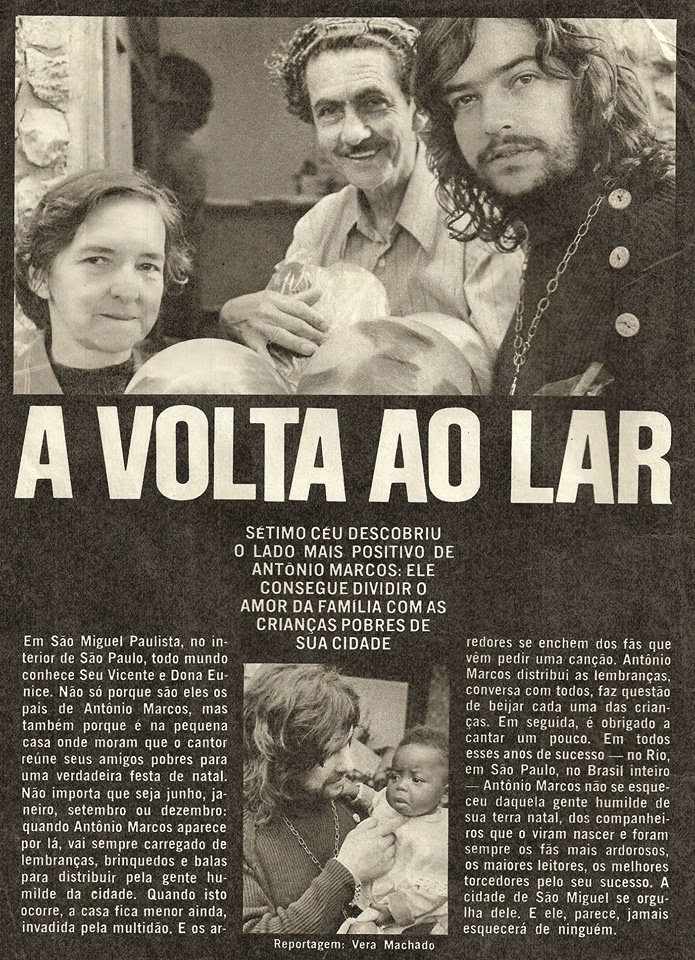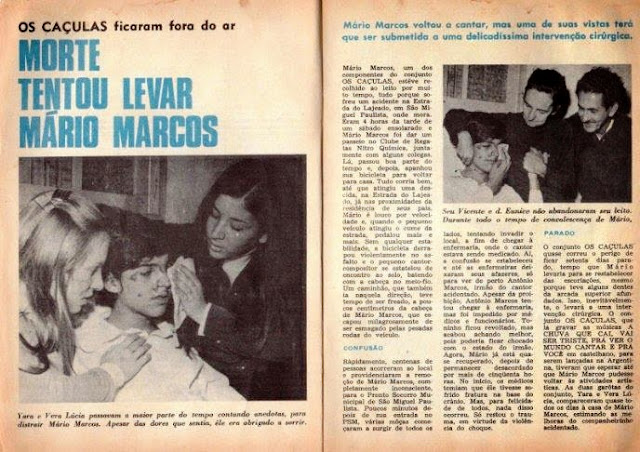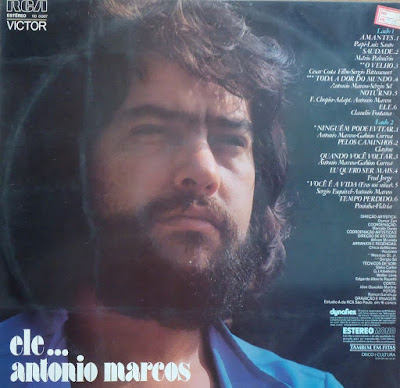June 1970 - Dave Gordon's album accompanied by Sao Paulo rock outfit The Rebels.
O artista principal dessa gravação - Dave Gordon ou 'King Dave' - esconde sob essa nomenclatura artística aquela que recebeu na pia batismal, de Neville Gordon. Nascido na Guiana Britânica (British Guiana) no dia 13 de agosto de 1932, é tão grande de tamanho quanto em altura artística - 1 metro e 92 centímetros.
Fez seus primeiros estudos na Freeburg Church da England School em Georgetown e com apenas 10 anos de idade participou do Coral da Igreja Anglicana local. Com 19 anos ganhou um concurso de calouros, recebendo uma medalha de ouro e um contrato de 1 ano com a Radio de Georgetown, além de viajar pelo Caribe, recebendo o título de Mr. Caribe, como melhor cantor do Caribe.
Em 1958, Dave formou The Four Lords, um conjunto vocal com Cy Manifold (* 27 April 1929 + 23 December 2008), Billy Moore and Johnny Bradford, partindo de Georgetown para o Brasil em excursão fazendo apresentações em Boa Vista, Recife, Salvador, Rio de Janeiro onde eles abriram o show de Sarah Vaughn na boite Fred's na Avenida Princesa Izabel em Copcabana. Em São Paulo se apresentaram na TV Record e restaurante Fasano. Voltando ao Rio ainda cantaram no Plaza, antes que cada membro seguisse seu próprio caminho, no entanto permanecendo a amizade.
Passando a cantar solo, Dave viajou pela America Latina acompanhado por músicos brasileiros como Luiz Chaves, Sabá, Rubinho, Edson Machado e Fred Feld, um pianista yankee, que morava em um apartamento na rua Martins Fontes, perto do Djalma's na Praça Roosevelt, onde mantinha pinturas originais de Toulouse Lautrec e Van Gogh na parede.
Dave participou até de um filme na Alemanha chamado 'The girl with the red hair'.
Dave casou-se com Denise Duran, irmã da famosa Dolores Duran e tiveram um casal de filhos, Izzy & Tony Gordon. Dave & Duran cantavam na boite Djalma's de Djalma Ferreira, sendo que Dave era acompanhado de Sabá (baixo), Milton (bateria) e Fred Feld ao piano, ao passo que Duran era acompanhada por Luiz Melo ao piano. Ambos excursionaram pelo Chile em 1961.
Dave Gordon agradece a todos que participaram desse album: maestro Laércio, José Marino (Zelão) e Hermeto, além, é claro de The Rebels, famosos por suas temporadas no My-Love e Michel, além de aparecerem em filmes como 'Conceição' e 'Noites vazias'.
1970 - Dave Gordon records 'The wonder of you' (made popular by Elvis Presley) and 'I want to go back to Bahia', Paulo Diniz's greatest hit.
P.S.: Dave Gordon has passsed away on 26 December 2016, in a Nursing Home in Sao Paulo where he'd been for some time after having been diagnosed with Alzheimer's disease. Dave left a daughter (Izzy Gordon) & son (Tony Gordon) plus many granddaughters, grandsons and at least one great-grand-son.
Dave participou até de um filme na Alemanha chamado 'The girl with the red hair'.
Dave casou-se com Denise Duran, irmã da famosa Dolores Duran e tiveram um casal de filhos, Izzy & Tony Gordon. Dave & Duran cantavam na boite Djalma's de Djalma Ferreira, sendo que Dave era acompanhado de Sabá (baixo), Milton (bateria) e Fred Feld ao piano, ao passo que Duran era acompanhada por Luiz Melo ao piano. Ambos excursionaram pelo Chile em 1961.
Dave Gordon agradece a todos que participaram desse album: maestro Laércio, José Marino (Zelão) e Hermeto, além, é claro de The Rebels, famosos por suas temporadas no My-Love e Michel, além de aparecerem em filmes como 'Conceição' e 'Noites vazias'.
1970 - Dave Gordon records 'The wonder of you' (made popular by Elvis Presley) and 'I want to go back to Bahia', Paulo Diniz's greatest hit.
P.S.: Dave Gordon has passsed away on 26 December 2016, in a Nursing Home in Sao Paulo where he'd been for some time after having been diagnosed with Alzheimer's disease. Dave left a daughter (Izzy Gordon) & son (Tony Gordon) plus many granddaughters, grandsons and at least one great-grand-son.
Cy Manifold formerly from The Four Lords, like Dave Gordon lived in Brazil.


.jpg)
.jpg)



























